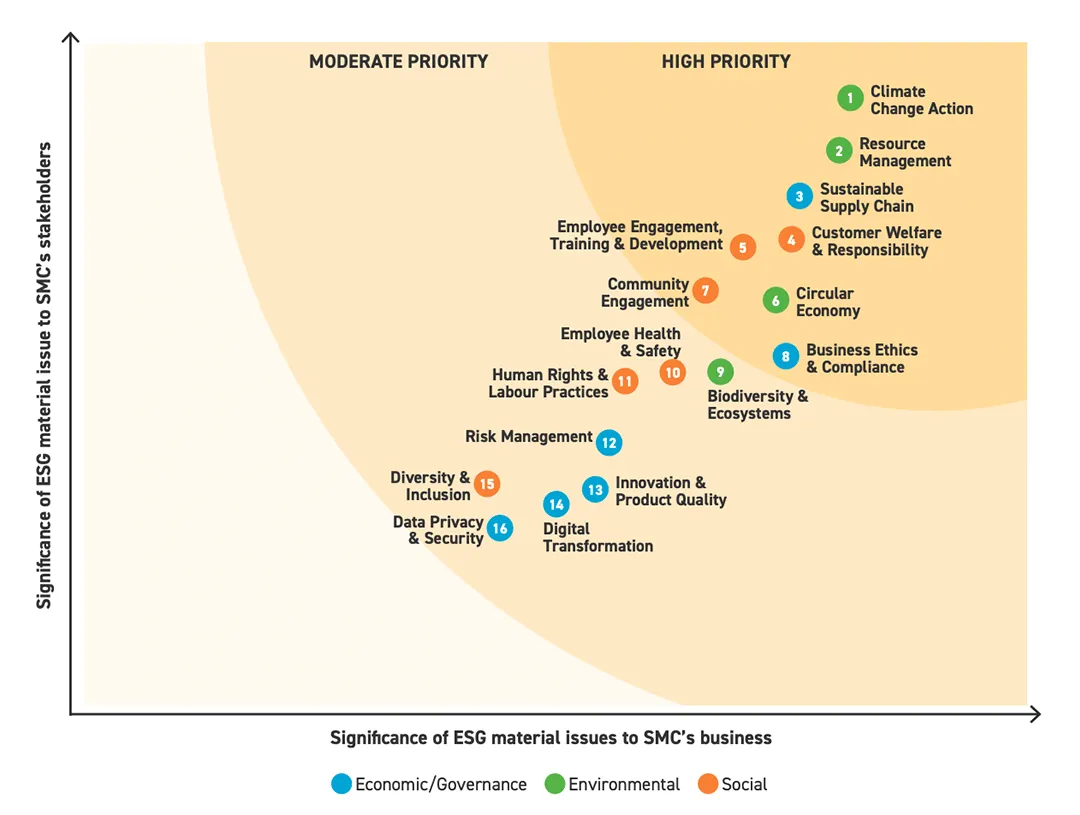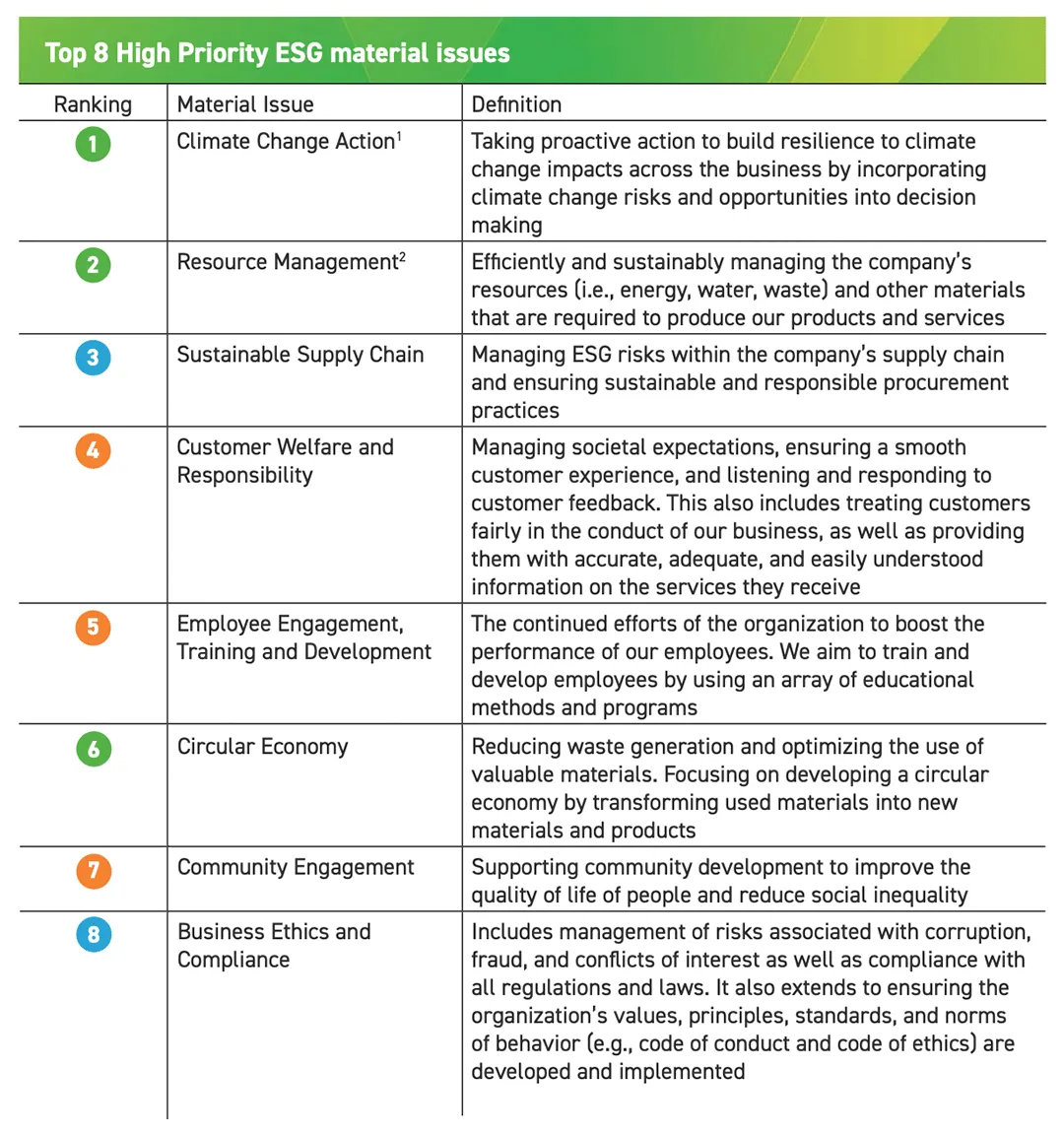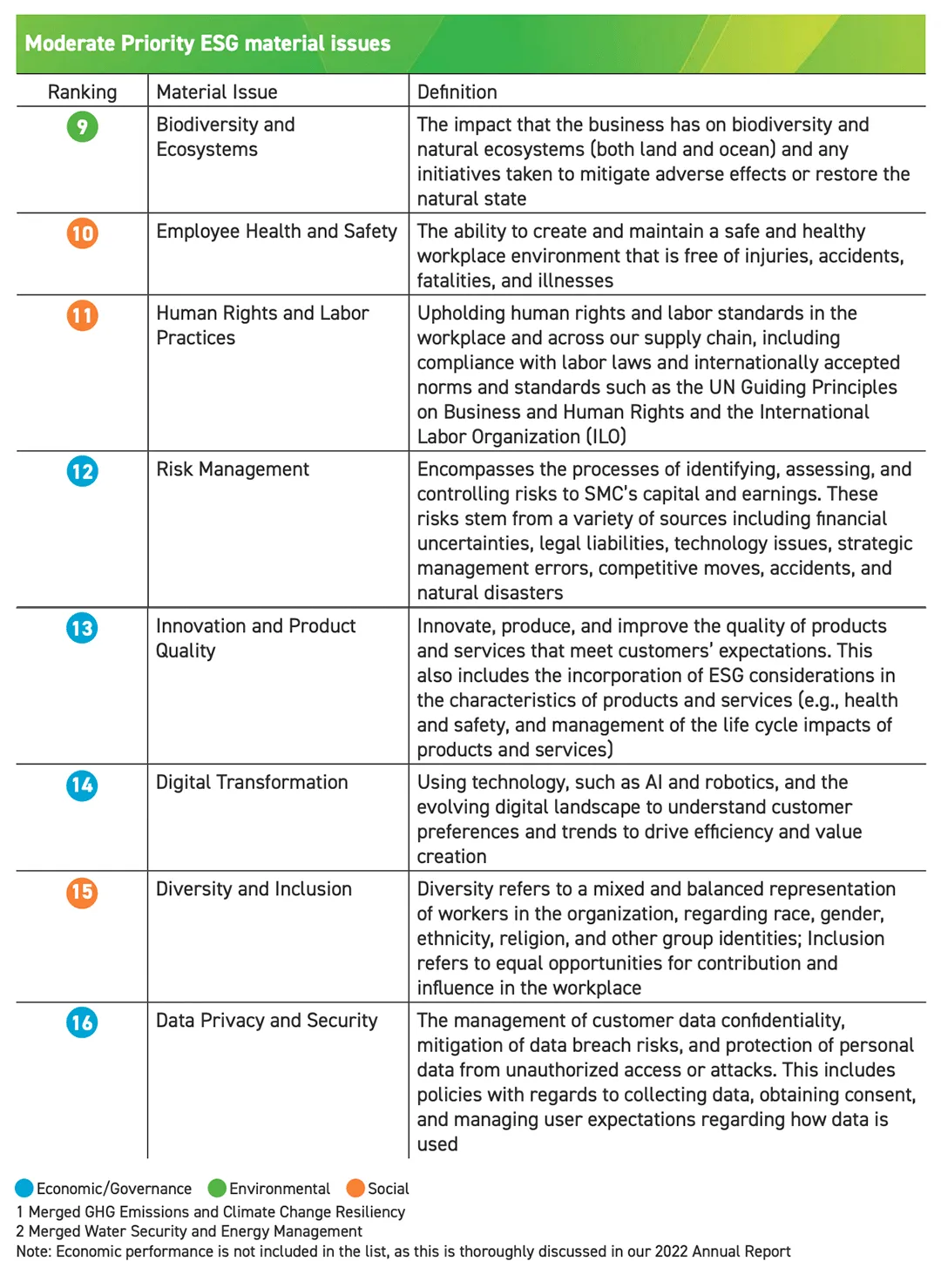Our Materiality Process
We are guided by the concept of materiality in our sustainability strategic planning and reporting processes. We define materiality as those topics and disclosures that embody SMC’s significant economic, environmental, social, and governance impacts that would substantially influence the decision-making activities of our stakeholders. Our approach to materiality is in line with the principles of the GRI Standards, SASB Standards, and other ESG frameworks.
We conducted the materiality assessment exercise according to the following steps:
We developed a long list of possible material topics applicable to SMC through peer analysis and a review of globally recognized ESG standards and frameworks. We identified and selected peer companies based on similarity in size, operations, and portfolio with SMC’s. This provided us with a perspective of the ESG issues deemed relevant by our global and local peers. We then triangulated the results with materiality guidelines from ESG standards and frameworks.
Afterwards, we brought the long list of material issues to our stakeholders through a series of engagement sessions to determine which ESG issues were most significant to them. This produced a shortlist of material topics, which we further prioritized through a Materiality Validation Workshop attended by SMC management.
Topics Material to Our Business

The following ESG topics were identified as being the most material to SMC and our stakeholders in 2022. The relative significance of each of these issues were determined based on stakeholder survey feedback and the business units’ responses during the validation workshop.
The 8 high priority material topics are large focus areas of the Company for the next one to two years. We endeavor to create and launch sustainability strategies, programs, and initiatives around these high priority topics to be able to address the risks and priorities they present to the Group. The remaining 8 topics were identified as moderate priority issues. These topics are already embedded in the company’s practices or are specific only to certain subsidiaries, rather than across all. We continue to track and monitor data related to these moderate priority issues.


As we advance in our sustainability endeavor, we will engage our external stakeholders in more extensive materiality discussions.
Our ESG Data Collection and Validation Process
We commit to complete transparency and accountability for our ESG actions and disclosures to our many stakeholders. We adhere to global standards and ensure that the data disclosed in this Report are accurate, balanced, and complete.
With the support of our external adviser, PwC, we developed a comprehensive, standardized data template to capture pertinent data and disclosures on our material ESG topics from our various subsidiaries. The data template integrates standards, principles, and requirements from various frameworks, such as the SEC requirements, GRI Standards, SASB Standards, the Task Force for Carbon Related Disclosure (TCFD) Framework, and the Carbon Disclosure Project Framework. We also created a supporting template to focus more on and capture detailed data on our environmental performance.
We also conducted workshops with the sustainability teams of the different subsidiaries included in this Report to facilitate a collaborative approach in the data template development process. This allowed us to fully capture nuances in various industries where SMC is present and adjust the templates accordingly.
Data Collection Process
The sustainability teams of our subsidiaries were responsible for distributing the data templates to their respective business units, as well as for collecting, verifying, and consolidating the data before submission to the SMC parent company.
The Corporate Sustainability Office of the parent company was responsible for collecting, reviewing, analyzing, and consolidating the data submitted by the various business units. Working alongside the Corporate Sustainability Office were key representatives from the Corporate Affairs Office, Corporate Human Resources, Corporate Finance, Office of the General Counsel, and the San Miguel Foundation, together forming the SMC Sustainability Core Team. With a more extensive knowledge and understanding of the Group’s activities, the Core Team ensured that the submitted data were complete and of sufficient quality before the final consolidated data were utilized as the basis of our core communications in this Report.
We commit to complete transparency and accountability for our ESG actions and disclosures to our many stakeholders.
With the insights gained from writing this Report, we have plans to make improvements to our future Sustainability Reports. Plans are in place to enhance and automate our data collection and validation processes and to utilize data analytics to identify risks and opportunities more effectively. By the end of 2025, we look forward to obtaining external assurance on our ESG data and other nonfinancial metrics.